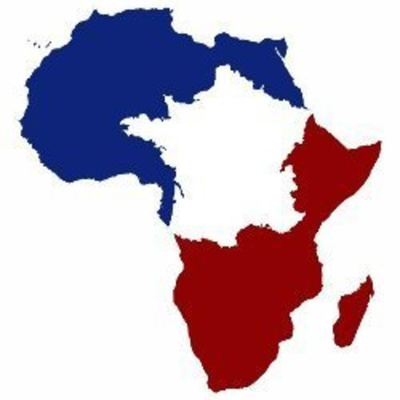France’s historical military presence in Africa, deeply rooted in its colonial past, is experiencing a significant decline. This shift, driven by a confluence of factors including rising anti-French sentiment, the emergence of new global powers, and the destabilizing impact of recent military coups, is reshaping the continent’s security environment and the future of Franco-African relations. The ongoing debate surrounding the potential accommodation of French troops in Nigeria’s northern region offers a pertinent case study through which to examine these evolving dynamics.
One of the most crucial factors fueling this decline is the escalating anti-French sentiment across Africa. This isn’t a recent phenomenon but rather a culmination of decades of simmering resentment stemming from the legacy of colonialism. The perception of continued French interference in African internal affairs, often supporting regimes perceived as serving French interests, has greatly exacerbated this sentiment. Accusations of neo-colonialism, particularly concerning economic exploitation and the continued influence of the CFA franc, further fuel public anger. This manifests in widespread protests demanding the withdrawal of French troops and a growing preference for partnerships with alternative global actors. The amplification of anti-French narratives through social media has dramatically strengthened this opposition, creating a powerful force against French influence.
Furthermore, the rise of new regional and global powers is significantly impacting France’s influence. Previously, France held a dominant position, leveraging a network of bilateral defense agreements and military bases. However, this network is increasingly fragile. Countries like Chad, once a crucial ally, have begun to assert their independence, terminating their defense cooperation pact with France. This illustrates a broader trend of African nations seeking to diversify their security partnerships, adopting a more multipolar foreign policy approach. This is evident in the growth of relationships with countries like Russia, China, and Turkey, which offer alternative support and investment without the historical baggage of colonialism. The decision by Senegal to end all foreign military presences by 2025 underscores this growing desire for self-reliance.
The recent military coups in Mali, Burkina Faso, and Niger have dramatically accelerated the decline. These coups, fueled by a complex interplay of internal political issues and anti-French sentiment, resulted in the expulsion of French forces. France’s response, involving troop withdrawals, highlighted the limitations of its military strategy in the face of these changing realities. The inability of France to effectively support its allies and maintain stability in these strategically important countries has raised serious questions about its long-term capacity for intervention in the region. The swiftness of these coups also demonstrated the erosion of French influence over the political stability of its former colonies.
The practical consequence of these factors is a noticeable reduction in France’s military footprint across the continent. The number of deployed French troops has significantly diminished, with a smaller presence concentrated in a few key locations. While a minimal presence remains in certain areas, the overall military influence is undeniably diminished. This reduction reflects a strategic shift by France, acknowledging the changing dynamics and the limitations of its previous approach. The era of extensive French military intervention in Africa, as exemplified by operations like Serval and Barkhane, is clearly drawing to a close.
The potential accommodation of French military personnel in Nigeria’s northern region adds another layer of complexity to this evolving situation. While France may offer valuable counter-terrorism expertise and logistical support, the acceptance of French troops would face significant challenges. The strong anti-French sentiment across much of Africa, amplified by similar sentiments within Nigeria itself, would likely fuel considerable opposition. Any agreement would require meticulous consideration of domestic political sensitivities and the potential for fueling further anti-French sentiment. The Nigerian government would need to balance the potential security benefits against the significant political risks of alienating a significant segment of the population. The alternative partnerships Nigeria may be cultivating with other nations could also factor into the decision-making process.
In conclusion, the decline of France’s military influence in Africa is a multifaceted phenomenon reflecting the changing geopolitical environment of the continent. The convergence of rising anti-French sentiment, the rise of alternative global partners, and the destabilizing effects of recent military coups have fundamentally altered Franco-African relations. While France may retain some level of engagement, its military role will likely be far less prominent.
The future of Franco-African relations will likely be defined by diplomatic and economic engagement rather than military intervention. The Nigerian government’s potential decision regarding the accommodation of French troops exemplifies the complexities of this evolving situation, highlighting the need for careful consideration of political, security, and public opinion considerations. The era of significant French military intervention in Africa is undeniably waning, giving way to a new era where African nations increasingly chart their own security destinies.


